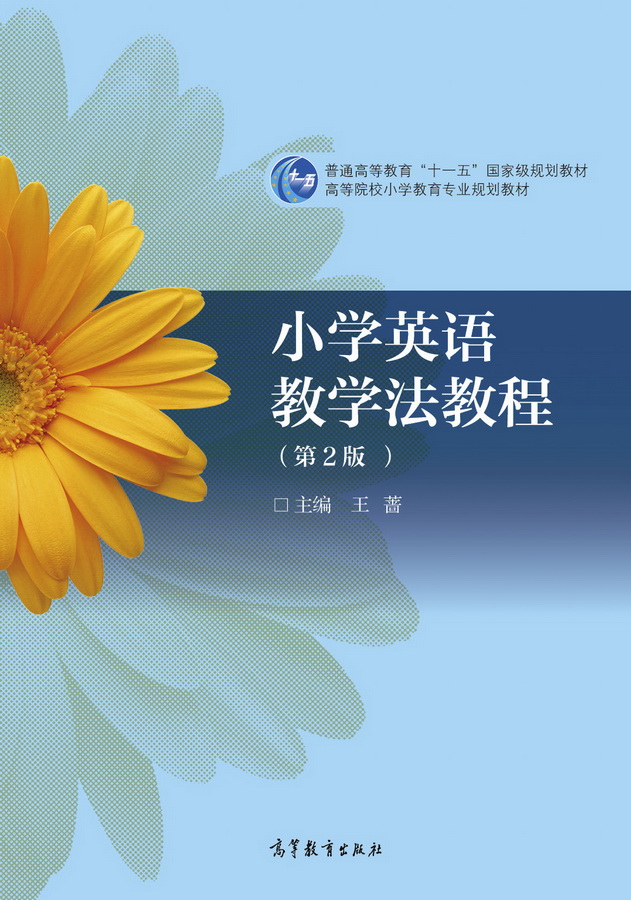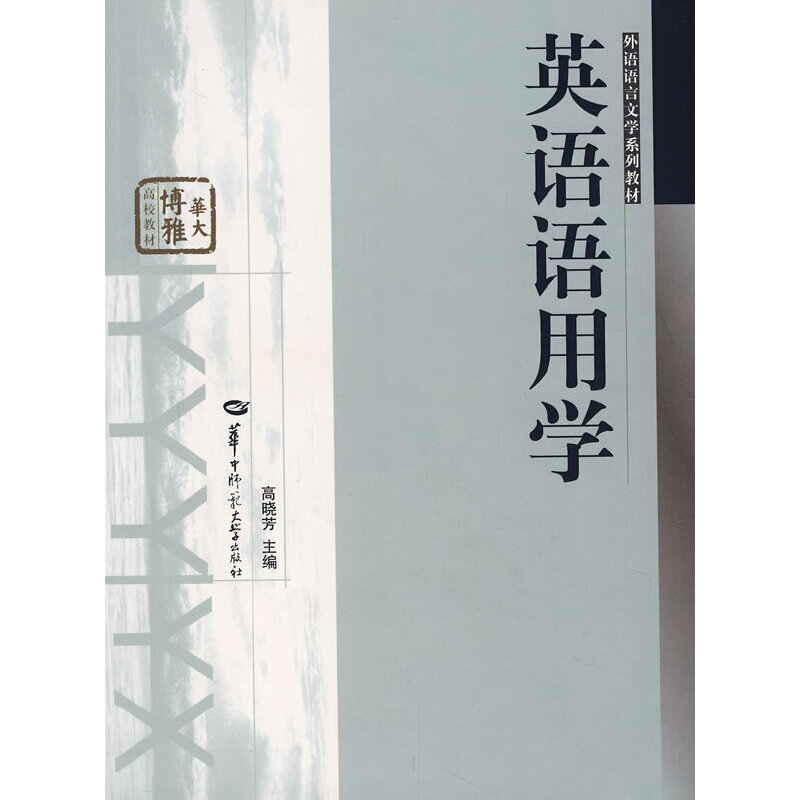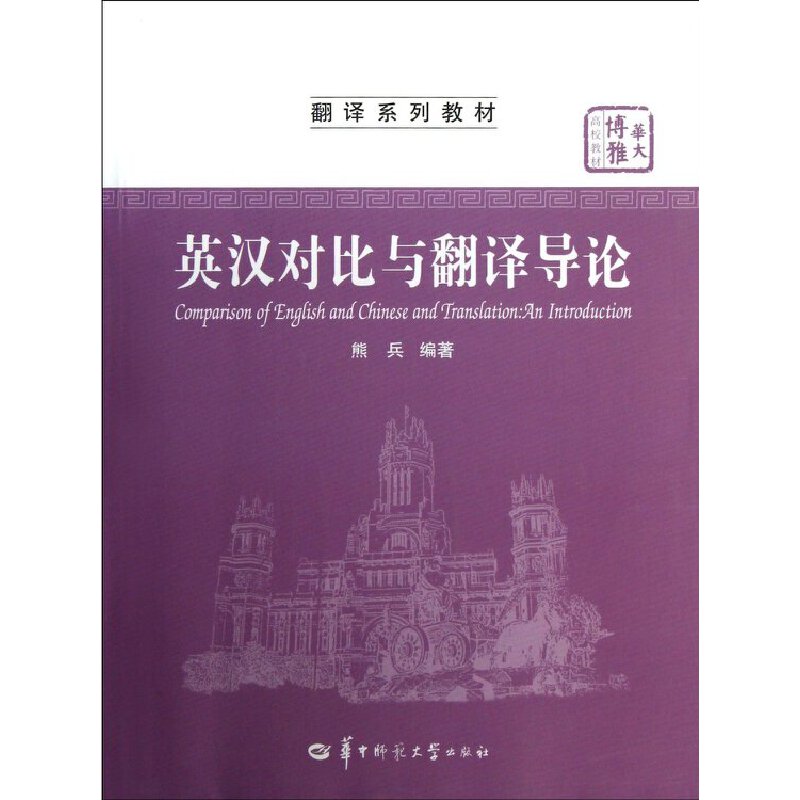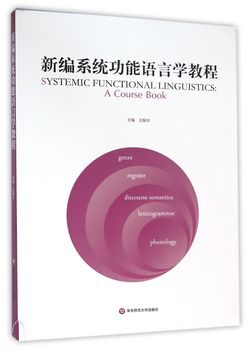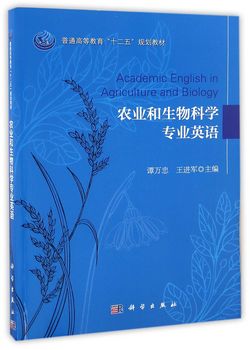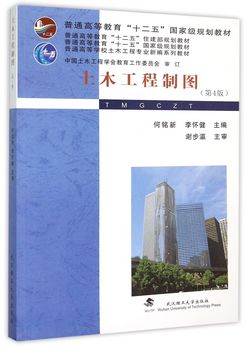英汉互译简明教程(第二版) / 英语翻译核心课程系列
定价:¥54.00
作者: 熊俊主编
出版时间:2019-08
出版社:武汉大学出版社
- 武汉大学出版社
- 9787307210387
- 283528
- 50212373-0
- 平装
- 16开
- 2019-08
- 390
- 306
- H315.9
- 外语
- 本科
作者简介
内容简介
英语行文,突出能力培养,强化实际应用,适应英语专业英语授课教学实际。
立足英汉互译,旨在帮助学生学习和掌握英、汉两种语言的差异及英汉互译的基本理论与翻译技巧。以往的翻译教材往往偏重培养学生英译汉的能力,对汉译英的能力没有强调和重视。
实用性强,用例新又颇具典型,理论言之有理,持之有据,逻辑严密,结构紧凑。译例丰富鲜活,选材广泛,深入浅出,练习较多,能满足翻译教学与自学译例需要。
具有多功能性,可以作为系统学习翻译的教科书,也可以作为工具书使用。适合广大英语专业师生、英语自学人员、翻译工作者、爱好者使用。
立足英汉互译,旨在帮助学生学习和掌握英、汉两种语言的差异及英汉互译的基本理论与翻译技巧。以往的翻译教材往往偏重培养学生英译汉的能力,对汉译英的能力没有强调和重视。
实用性强,用例新又颇具典型,理论言之有理,持之有据,逻辑严密,结构紧凑。译例丰富鲜活,选材广泛,深入浅出,练习较多,能满足翻译教学与自学译例需要。
具有多功能性,可以作为系统学习翻译的教科书,也可以作为工具书使用。适合广大英语专业师生、英语自学人员、翻译工作者、爱好者使用。
目录
Chapter 1 General Introduction
1.1 Definition of Translation
1.2 Classification of Translation
1.3 History of Translation
1.3.1 Translation in the Western World
1.3.2 Translation in China
1.4 Trend of Translation Studies
1.5 Prerequisites for Translators
1.6 Principles or Criteria of Translation
Chapter 2 Process and Methods of Translation
2.1 Process of Translation
2.1.1 Comprehension
2.1.2 Expression
2.1.3 Revision
2.2 Methods of Translation
2.2.1 Literal Translation and Free Translation
2.2.2 Foreignization and Domestication
2.2.3 Transliteration
Chapter 3 Contrastive Studies Between English and Chinese
3.1 On Lexical Level
3.2 On Sentence Level
3.2.1 Synthetic vs Analytic
3.2.2 Subject vs Topic
3.2.3 Impersonal vs Personal
3.2.4 Static vs Dynamic
3.2.5 Active vs Passive
3.2.6 Hypotactic vs Paratactie
3.2.7 Substitution vs Repetition
3.2.8 Complex vs Simplex
3.2.9 Abstract vs Concrete
3.2.10 Indirect vs Direct
3.3 On Text Level
Chapter 4 Translation Techniques
4.1 Diction
4.1.1 Word Meanings (Conceptual Meaning, Stylistic Meaning,Linguistic Meaning and Pragmatic Meaning)
4.1.2 Choice of Word Meanings
4.2 Repetition
4.2.1 Repetition in E-C Translation
4.2.2 Repetition in C-E Translation
4.3 Amplification
4.3.1 Amplification in E-C Translation
4.3.2 Amplification in C-E Translation
4.4 Omission
4.4.1 Omission in E-C Translation
4.4.2 Omission in C-E Translation
4.5 Conversion
4.5 . 1 Conversion in E-C Translation
4.5.2 Conversion in C-E Translation
4.6 Inversion
4.6.1 Inversion in E-C Translation
4.6.2 Inversion in C-E Translation
4.7 Negation
4.7.1 Negation in E-C Translation
4.7.2 Negation in C-E Translation
4.8 Change of Voices
4.8.1 Change of Voices in E-C Translation
4.8.2 Change of Voices in C-E Translation
4.9 Division
4.9.1 Division in E-C Translation
4.9.2 Division in C-E Translation
4.10 Combination
4.10.1 Combination in E-C Translation
4.10.2 Combination in C-E Translation
Chapter 5 Translation of Long Sentences
5.1 Steps in Translating Long Sentences
5.2 Methods of Translating Long Sentences
5.2.1 E-C Translation of Long Sentences
5.2.2 C-E Translation of Long Sentences
Chapter 6 Translation of Titles of Books and Articles
6.1 Translation of Titles of English Articles
6.2 Translation of Titles of Chinese Articles
6.3 Translation of Titles of English Books
6.4 Translation of Titles of Chinese Books
Chapter 7 Translation and Culture
7.1 Disparity in Western and Chinese Culture
7.2 Translation of Idioms
7.3 Translation of Chinese Dish Names
7.4 Advertising Translation
7.5 Translation of Tourism Writing
Reference Answers to Exercises
Appendix Ⅰ Table on English-Chinese Transliteration(英汉译音表)
Appendix Ⅱ Chinese Phonetic Alphabet and Wade System(汉语拼音和威妥玛式拼音法音节对照表)
Bibliography
1.1 Definition of Translation
1.2 Classification of Translation
1.3 History of Translation
1.3.1 Translation in the Western World
1.3.2 Translation in China
1.4 Trend of Translation Studies
1.5 Prerequisites for Translators
1.6 Principles or Criteria of Translation
Chapter 2 Process and Methods of Translation
2.1 Process of Translation
2.1.1 Comprehension
2.1.2 Expression
2.1.3 Revision
2.2 Methods of Translation
2.2.1 Literal Translation and Free Translation
2.2.2 Foreignization and Domestication
2.2.3 Transliteration
Chapter 3 Contrastive Studies Between English and Chinese
3.1 On Lexical Level
3.2 On Sentence Level
3.2.1 Synthetic vs Analytic
3.2.2 Subject vs Topic
3.2.3 Impersonal vs Personal
3.2.4 Static vs Dynamic
3.2.5 Active vs Passive
3.2.6 Hypotactic vs Paratactie
3.2.7 Substitution vs Repetition
3.2.8 Complex vs Simplex
3.2.9 Abstract vs Concrete
3.2.10 Indirect vs Direct
3.3 On Text Level
Chapter 4 Translation Techniques
4.1 Diction
4.1.1 Word Meanings (Conceptual Meaning, Stylistic Meaning,Linguistic Meaning and Pragmatic Meaning)
4.1.2 Choice of Word Meanings
4.2 Repetition
4.2.1 Repetition in E-C Translation
4.2.2 Repetition in C-E Translation
4.3 Amplification
4.3.1 Amplification in E-C Translation
4.3.2 Amplification in C-E Translation
4.4 Omission
4.4.1 Omission in E-C Translation
4.4.2 Omission in C-E Translation
4.5 Conversion
4.5 . 1 Conversion in E-C Translation
4.5.2 Conversion in C-E Translation
4.6 Inversion
4.6.1 Inversion in E-C Translation
4.6.2 Inversion in C-E Translation
4.7 Negation
4.7.1 Negation in E-C Translation
4.7.2 Negation in C-E Translation
4.8 Change of Voices
4.8.1 Change of Voices in E-C Translation
4.8.2 Change of Voices in C-E Translation
4.9 Division
4.9.1 Division in E-C Translation
4.9.2 Division in C-E Translation
4.10 Combination
4.10.1 Combination in E-C Translation
4.10.2 Combination in C-E Translation
Chapter 5 Translation of Long Sentences
5.1 Steps in Translating Long Sentences
5.2 Methods of Translating Long Sentences
5.2.1 E-C Translation of Long Sentences
5.2.2 C-E Translation of Long Sentences
Chapter 6 Translation of Titles of Books and Articles
6.1 Translation of Titles of English Articles
6.2 Translation of Titles of Chinese Articles
6.3 Translation of Titles of English Books
6.4 Translation of Titles of Chinese Books
Chapter 7 Translation and Culture
7.1 Disparity in Western and Chinese Culture
7.2 Translation of Idioms
7.3 Translation of Chinese Dish Names
7.4 Advertising Translation
7.5 Translation of Tourism Writing
Reference Answers to Exercises
Appendix Ⅰ Table on English-Chinese Transliteration(英汉译音表)
Appendix Ⅱ Chinese Phonetic Alphabet and Wade System(汉语拼音和威妥玛式拼音法音节对照表)
Bibliography


